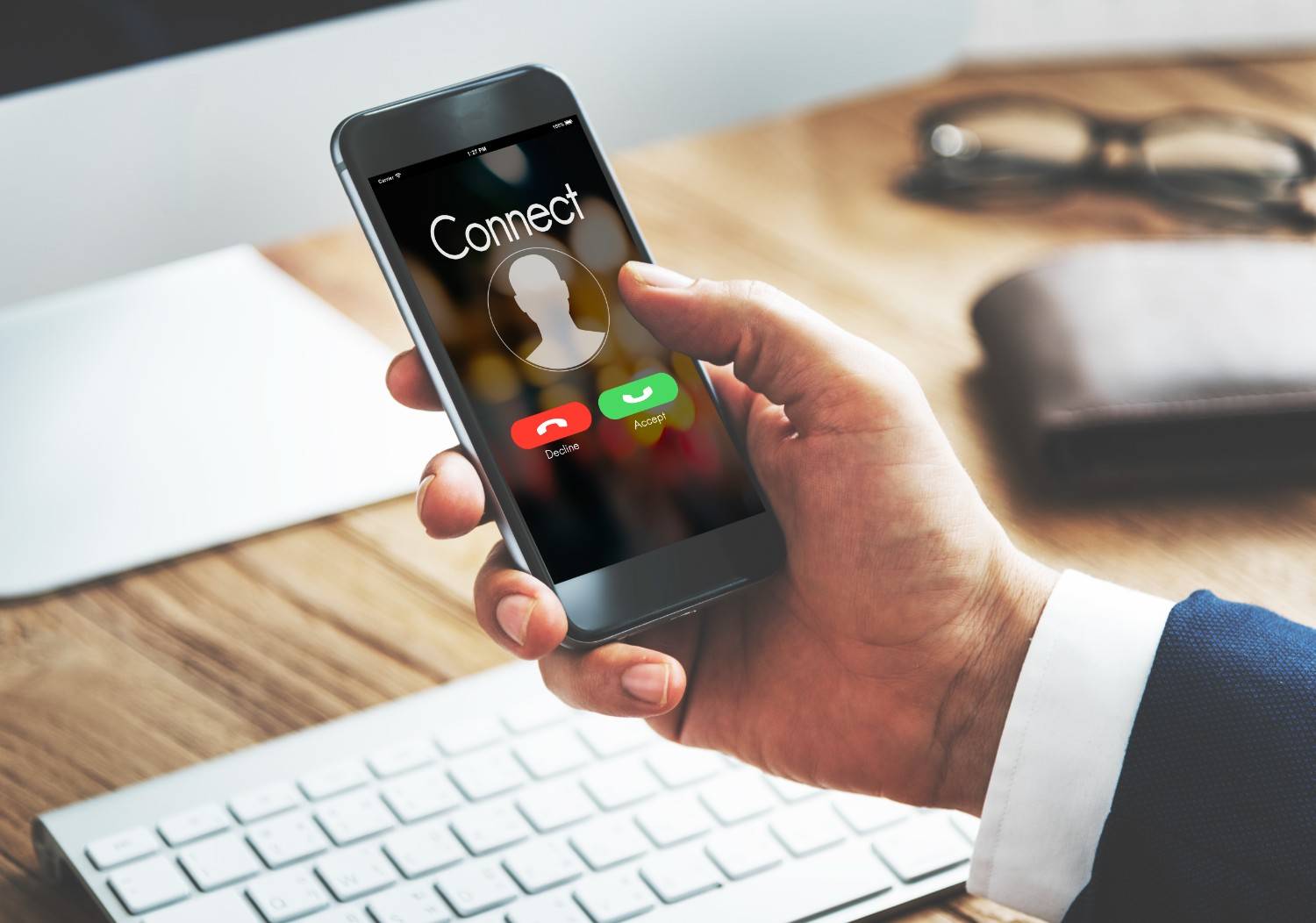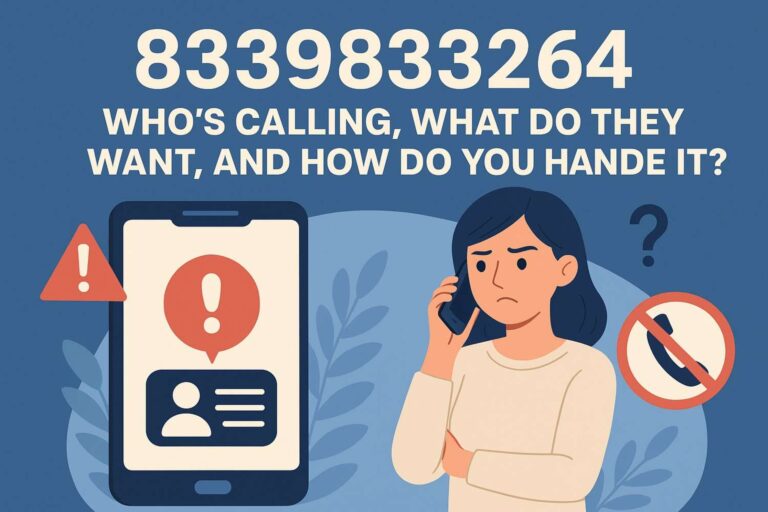I still remember the first time 8339833264 popped up on my phone. I stared at it, wondered if I’d missed a package, and then did what most of us do—Googled it. If you’ve landed here for the same reason, you’re in the right place. I pulled patterns from top-performing “who called me” blogs—clear verdict up top, sources cited, practical step-by-step fixes, and a tight FAQ—to give you a simple plan you can follow right now without the doom scroll.
Is 8339833264 legit or a scam?
Reports suggest the number is a toll-free line tied to automated wellness or health-plan outreach messages, frequently associated by users with Kaiser Permanente. On YouMail’s community directory, multiple comments describe automated prompts referencing Kaiser services and opt-out flows. Some users on RoboKiller’s lookup also mention Kaiser links (like kp.org/new) alongside “Potential Spam” tags—so experiences vary. On 800notes, callers describe a “Kaiser Permanente” robocall that felt legitimate but unsolicited.
Here’s the nuance: Kaiser publicly warns that scammers do impersonate the organization by phone and advises members to be careful with requests for personal or financial data. If a caller asks for sensitive info, treat it as suspicious and hang up.
Bottom line: Some people get benign plan-related messages; others see spammy behavior. You should verify independently before you trust any request.

What do trusted sources say about health-plan calls and impersonation?
Kaiser’s own security page flags rising impersonation attempts and clarifies it will only contact people regarding billing and services they received—never to sell or share your personal, financial, or medical info. If a call claims to be from your health plan, hang up, then call the number on your ID card or the official website. If you’re a Kaiser member and need to complain about unwanted outreach, start from Kaiser’s official support pages instead of links given in a call.
Government guidance aligns with this approach: the FTC and FCC both advise against sharing personal data over unsolicited calls, encourage call-blocking, and recommend reporting illegal robocalls.
How do I handle a call from 8339833264 step-by-step?
- Don’t answer, or hang up quickly. If you pick up and it’s a recorded message or a rep asking for sensitive info, end the call. The FTC says to block and report unwanted calls—especially those requesting payment or personal details.
- Verify independently. If the call claims to be your insurer (e.g., Kaiser), use the member portal or the number on your insurance card—not the number that called you—to confirm any message or action item. Kaiser explicitly warns about impersonation calls.
- Block the number on your device/carrier app. Your carrier’s spam-filter tools help cut repeat robocalls. The FCC’s guide explains options and your rights.
- Report the call.
- FTC — Do Not Call/Unwanted calls: file a report at DoNotCall.gov.
- FCC — Unwanted calls/texts: submit a complaint if you believe the call was illegal or spoofed.
- If you’re a Kaiser member and the call seemed relevant but pushy, contact Kaiser through official channels to confirm and adjust your communication preferences.
Is 8339833264 on scam trackers?
Community-report sites paint a mixed picture:
- YouMail: user reports of automated Kaiser messages and opt-outs.
- RoboKiller: mixed labels from “allow” to “scam,” including references to Kaiser resources.
- 800notes: some categorize it as unwanted but seemingly related to Kaiser.
- Other aggregators generally mark it toll-free/non-geographic with negative or unclear sentiment.
This variability is common with large health systems and third-party outreach vendors. Treat each call as unverified until you confirm through official channels.
![]()
What are the safest ways to reduce these calls long-term?
- Register and report at the FTC’s National Do Not Call Registry (free). While it won’t stop every call, reports help enforcement.
- Use your carrier’s spam tools and your phone’s built-in blocking. The FCC’s consumer guide lists options and explains STIR/SHAKEN anti-spoofing efforts.
- Keep personal info off the call. The HHS OIG warns that scammers exploit health topics to phish for data—don’t confirm your SSN, member ID, or payment details to an unexpected caller.
FAQs about 8339833264
1. Is 8339833264 definitely Kaiser Permanente?
Not definitively. Multiple users associate it with Kaiser outreach, but impersonation is a known problem. Even if the caller ID or script mentions Kaiser, you should verify by calling the official number on your member ID card or the website—not any number provided in a voicemail or text. Kaiser’s security page explicitly warns about fake calls that request personal info.
2. Should I press a keypad option to “opt out”?
I don’t recommend it. With legitimate campaigns, an opt-out may work, but with shady actors it confirms your number is active, which can lead to more spam. The FTC’s consistent guidance is to hang up, block, and report. If you’re a member of the purported organization, adjust preferences directly in your account.
3. How do I report 8339833264 if I keep getting calls?
File a complaint with the FCC under “Unwanted calls/texts,” and report at the FTC’s Do Not Call site. These reports feed investigations and enforcement actions. If you lost money or shared sensitive info, report at ReportFraud.ftc.gov as well.
4. Could this be a harmless wellness reminder?
Possibly. Some users describe automated wellness or “self-care tools” messages tied to a health plan. But because impersonation exists, assume nothing. Hang up and confirm through the official member line or portal before acting on any message.
So…what’s my strategy if 8339833264 calls again?
Think of this as your three-step play: ignore, verify, report. Don’t engage on the call. Instead, contact your health plan (or the claimed business) using the phone number on your card or their official website to confirm whether they reached out. Then block 8339833264, and file quick reports with the FTC/FCC to help clamp down on bad actors.
A quick, sassy send-off
You don’t owe unknown callers your time—or your data. The next time 8339833264 flashes on your screen, you’ll know exactly what to do: hang up, verify on your terms, and keep your info locked down. If it’s truly important, the real organization will confirm it through official channels.
Note: Information above reflects public user reports and official consumer-protection guidance available at the time of writing. Always confirm details with your health plan or the relevant organization directly.

